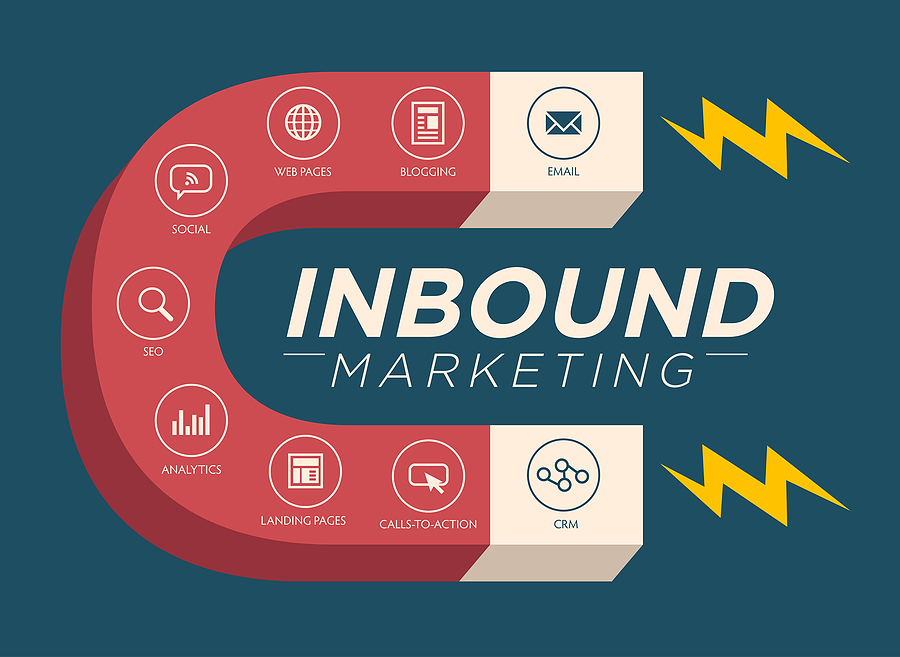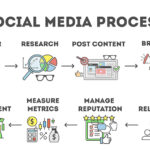
A Guide for Small Business Owners
As a small business owner, staying connected with your customers is vital for success. Social media platforms provide excellent opportunities for engagement, but managing interactions and data can be overwhelming. That’s where integrating your Customer Relationship Management (CRM) system with social media comes in. In this comprehensive guide, we’ll explore the benefits, best practices, and easy steps to achieve CRM integration with social media, helping you make the most of your digital presence.
The Value of CRM and Social Media Integration
- Centralized Customer Data: Merge all customer interactions and data in one place by integrating CRM with social media. This consolidated view helps you better understand your customers and tailor your marketing efforts. For example, use tools like Salesforce or HubSpot to connect Facebook and Twitter interactions with your CRM system.
- Enhanced Customer Engagement: Respond promptly to inquiries, participate in conversations, and provide exceptional customer service on social media platforms. For instance, when a customer messages you on LinkedIn, ensure that the interaction gets automatically recorded in your CRM for future reference.
- Data-Driven Decision-Making: Gain valuable insights into your marketing campaigns and customer sentiment by combining CRM and social media data. This will help you make informed decisions and optimize your marketing strategies. Analyze the success of a recent Instagram campaign by tracking conversion rates in your integrated CRM system.
- Unified Customer Insights: Integrating CRM with social media channels like Facebook and Linkedin provides a holistic view of customer interactions, aiding in personalized marketing strategies.
- Improved Engagement: Instantly record social interactions in your CRM, ensuring no customer query goes unanswered, enhancing service quality.
- Informed Strategies: Merge social media and CRM data for deeper insights into customer behavior and campaign performance, allowing for fine-tuned marketing efforts.
Best Practices for CRM Integration with Social Media
- Choose the Right CRM and Social Media Platforms: Select a CRM that suits your needs and easily integrates with your target social media platforms. For instance, if you’re active on Instagram and LinkedIn, choose a CRM that supports integration with these platforms, like Zoho CRM or Pipedrive.
- Define Your Objectives: Clearly outline your integration goals. Do you want to improve customer service, generate leads, or increase sales? Set specific objectives to guide your integration process. For instance, if lead generation is a priority, ensure that your CRM captures leads from social media sign-up forms.
- Ensure Data Privacy and Security: Handle customer data from social media channels securely and in compliance with data protection regulations. Make sure only authorized personnel have access to sensitive information.
- Automate Data Syncing: Save time and reduce errors by automating data syncing between your CRM and social media platforms. Utilize integration tools or plugins that allow seamless data exchange. For example, automate the process of importing customer data from your Facebook Lead Ads directly into your CRM system.
- Create Customer Segmentation: Leverage integrated data to segment your customers based on their interests, behaviors, and demographics. This segmentation allows you to tailor marketing campaigns and content. Use data from integrated platforms to create targeted ads for specific customer segments.
- Monitor and Measure Results: Regularly track key metrics like customer engagement, conversion rates, and ROI to assess the success of your integrated CRM and social media efforts. Use this data to identify areas for improvement. For instance, track how many social media inquiries turn into actual sales using CRM reports.
- Integrate Chatbots for Immediate Engagement: Implement AI-powered chatbots on social media platforms that are integrated with your CRM. This ensures immediate response to customer inquiries, capturing leads directly into your CRM for follow-up, enhancing the customer service experience.
CRM Integration with Social Media – Overview
- Identify Integration Points: Determine the areas where data exchange is necessary between your CRM and social media platforms. For example, integrate your CRM with your Facebook page to capture lead form submissions.
- Choose Integration Tools: Research and select appropriate integration tools or plugins that support your CRM and social media integration needs. Ensure these tools are easy to use and reliable.
- Configure Integration Settings: Set up the integration tools following their instructions. Map data fields between your CRM and social media platforms to ensure seamless data transfer.
- Test the Integration: Before going live, perform thorough testing to confirm data accuracy and functionality. Check if all interactions on social media are being recorded in your CRM as expected.
- Train Your Team: Train your team members on how to use the integrated CRM and social media tools efficiently. Provide them with guidelines on managing data and engaging with customers through social media platforms.
- Monitor and Optimize: After integration, monitor performance and gather feedback from your team. Continuously optimize your strategies based on the insights you gain. Regularly review CRM reports to analyze the impact of social media integration on your business.
- Explore New Integration Platforms: Stay updated with the latest integration tools and platforms that offer enhanced capabilities for linking CRM and social media. Tools like Zapier, Integrately, or native integrations offered by CRM providers can streamline data syncing and offer new functionalities.
CRM integration with social media offers immense benefits for small businesses.
By following the best practices and easy steps mentioned in this guide, you can build stronger customer relationships, improve engagement, and make data-driven decisions. Embrace the power of CRM and social media integration to propel your small business forward in the digital era. Stay ahead of the competition and unlock the full potential of your business through this seamless integration.

Since its launch in 2016, Bizbotweb has been at the forefront of empowering businesses and individuals to easily navigate the digital world, from owning their intellectual property to managing websites and simplifying WordPress setups. As the author of our articles, the “Chief Robot” brings a wealth of knowledge and innovation, embodying Bizbotweb’s commitment to making digital presence seamless and accessible for everyone. Focusing on integrated digital marketing efforts, our content is designed to guide users through the evolving digital landscape, ensuring they have the tools and insights needed to thrive online.
Blog Categories
Check out other Pages
Have questions?
Schedule a free consultation if you have questions about our digital marketing services or would like additional information.










